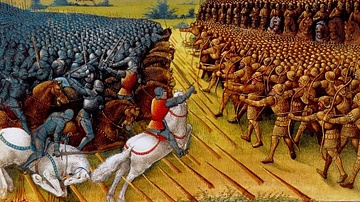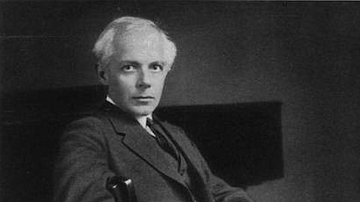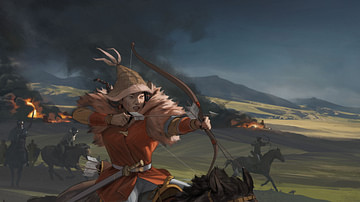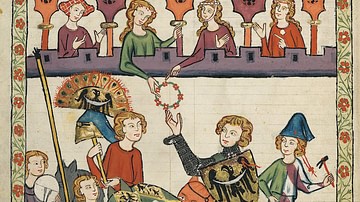Search
Search Results

Definition
Battle of Nicopolis
The Battle of Nicopolis in September 1396 CE, also known as the Nicopolis Crusade, was an attempt by French, Hungarian, and other European allies to curb the threat of the Ottoman Turks as they pressed ever westwards into Europe. Nicopolis...

Definition
Béla Bartók
Béla Bartók (1881-1945) was an innovative Hungarian pianist and composer most famous for his classical works for piano and orchestra, string quartets, and songs, many of which present traditional Hungarian and other European folk themes...

Definition
Saint Margaret of Scotland
Saint Margaret of Scotland (c. 1046-1093 CE) was, as the second wife of Malcolm III (r. 1058-1093 CE), the queen of Scotland from 1070 CE until her death in November 1093 CE. A princess of the royal house of Wessex, she brought Anglo-Saxon...

Definition
Treaty of Versailles
The Treaty of Versailles, signed in June 1919, was an agreement between the victors of the First World War (1914-18) which redivided parts of Europe and imposed reparations, armament limitations, and total blame for the war on Germany, one...

Definition
Attila the Hun
Attila the Hun (r. 434-453 CE) was the leader of the ancient nomadic people known as the Huns and ruler of the Hunnic Empire, which he established. His name means "Little Father" and, according to some historians, may not have been his birth...

Definition
Auschwitz
Auschwitz was a concentration and extermination camp in German-occupied Poland operated by the Nazi SS from 1940 to 1945. Around 1.1 million people died at the Auschwitz complex from overwork, malnutrition, disease, and in the gas chambers...

Definition
Franz Liszt
Franz Liszt (1811-1886) was a Hungarian composer of Romantic Music. Liszt first gained international fame as a piano virtuoso, an activity in which he was a pioneer, and then as a composer of piano works and symphonic poems, a form he created...

Definition
Richard Grenville
Sir Richard Grenville (1542-1591 CE) was an Elizabethan adventurer, mariner, and privateer whose life story is as entertaining as any fictional sailor. His early career saw him become a Member of Parliament, a soldier in Hungary, and a plantation...

Definition
Huns
The Huns were a nomadic tribe prominent in the 4th and 5th century whose origin is unknown but, most likely, they came from "somewhere between the eastern edge of the Altai Mountains and the Caspian Sea, roughly modern Kazakhstan" (Kelly...

Definition
Medieval Chivalry
In medieval Europe, a code of ethics known as chivalry developed which included rules and expectations that the nobility would, at all times, behave in a certain manner. Chivalry was, in addition, a religious, moral and social code which...